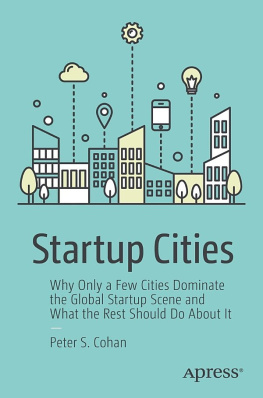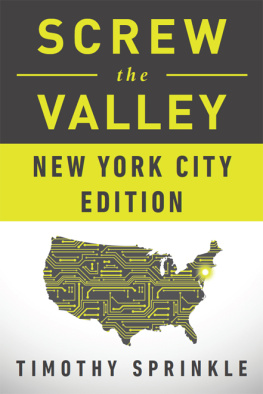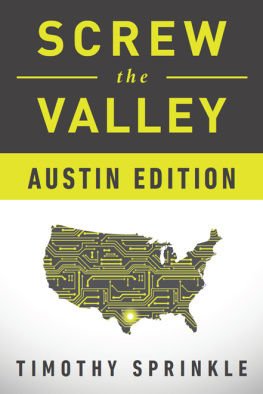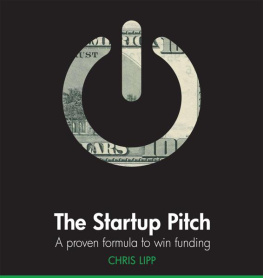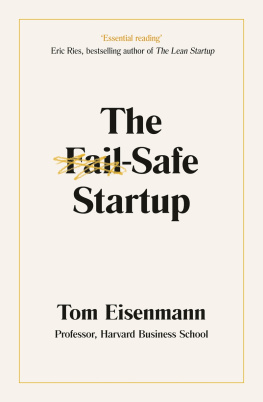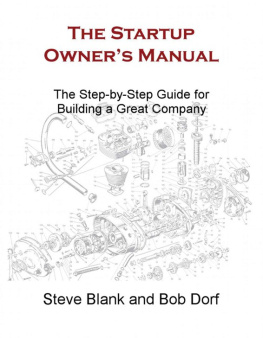Who I Am and Why I Wrote This Book
I was the poster child for a confused adolescent. In college, I stumbled through a series of seemingly random career aspirationsconcert pianist, poet, and architectbefore realizing in my senior year that I wanted a career that combined my interests in computers and business strategy. So I set my sights on becoming a strategy consultant to help companies identify, evaluate, and profit from growth opportunities, which I have done in various guises ever since.
Back then, consulting firms hired newly minted MBAs rather than college graduates as they do these days.
While doing graduate studies in computer science at MIT, I met with the director of career counseling at its Sloan School of Management who introduced me to Index Systems, a consulting firm founded by three former Sloan School professors. I found out that consulting firms hired very talented people and provided opportunities for traveling and working on a variety of interesting projects. Index focused on helping managers use technology to boost business performance.
I decided that I was most interested in strategy work so after earning an MBA at The Wharton School, I went to work for Monitor Company, a strategy consulting firm co-founded by Harvard Business School strategy guru Michael Porter. My years there were a supremely intense learning experience. Thanks to what partners saw as a talent for turning Porters ideas into processes for leading client teams, I was quickly promoted to managing consultant teams. Ultimately, the demanding travel burned me out and I spent the next few years working as an internal consultant in the banking and insurance industries.
In 1994, I took a chance and started my own consulting firm that provided strategy consulting for large high technology companies. This happened at a lucky time in economic history; the Internet was emerging as a major force for business growth. My consulting business boomed, I wrote several books, including Net Profit , which made me a regular on TV networks such as CNBC and an in-demand speaker at business conferences around the world. I also began investing in startups; since then, I have funded seven private companies. Three of them were sold for over $2 billion.
In 2001, I began teaching at Babson College, which U.S. News and World Report has ranked the top U.S. entrepreneurship school for the last two decades. After teaching part-time, I became a full-time lecturer in 2014 and was promoted to a Lecturer of Strategy in 2016. I teach MBA and undergraduate courses such as Strategy and the CEO, Strategic Decision Making, Strategic Problem Solving, and Foundations of Entrepreneurial Management. I also created and lead Electives Abroad to Hong Kong and Singapore, Israel, Spain and Portugal, and Paris.
This brings me to why I wrote this bookthe idea that despite the wide popularity of the World is Flat mindset, when it comes to startups the opposite is true. Namely, where you locate a startup matters, and as youll see below, location can make a big difference in whether a startup succeeds or fails.
This topic is of more than academic interest to me. I was born in Worcester, Mass. and come from a long line of entrepreneurs. For example, my great-grandfather started an ice and oil delivery business in the late 1800s. One of my grandfathers started a jewelry retailing business; my other grandfather started and built one of the largest independent accounting firms in central Massachusetts. And with his MIT roommate, Amar Bose, my uncle founded Bose Corporation. While my parents generation operated many successful businesses in Worcester, my generation left town to seek our fortunes elsewhere. For example, one of my classmates moved to New Hampshire to start Cabletron Systems, a publicly-traded network equipment maker that was closed in 2013 while another started Acme Packet, a Bedford, Mass.-based, publicly-traded telecommunications equipment maker bought by Oracle that same year, leading to the question of why. More specifically, given that Worcester is the second largest city in New England and that it has 11 institutions of higher learning, why did so many of its most talented people leave town? I began looking into this question when I became a columnist for the local newspaper, Worcesters Telegram & Gazette , in 2011. In May 2013, I hosted an event at Worcesters DCU Center called the Worcester Startup Common Forum to look into this question and to urge changes that would reverse this leakage of talent.
At the same time, I was interviewing entrepreneurs and investors around the country for my eleventh book, Hungry Startup Strategy . In December 2011, I interviewed Kevin Hartz, co-founder of Eventbrite, an event ticket-seller. A graduate of Stanford who earned a Masters degree from Oxford, Hartz vaguely described something that he called Silicon Valley's startup commons. Likening it to open source software, he described this startup commons as an ecosystem of mentors and young entrepreneurs that could learn from each other and ratchet up the entrepreneurial effectiveness of the region. I thought about this idea and began conducting more interviews focused specifically on developing the elements of what I call here the Startup Common. In so doing, I began to realize that the relative strength or weakness of a citys Startup Common had a major influence on whether valuable startup talent would be attracted to or repelled from a specific city.

